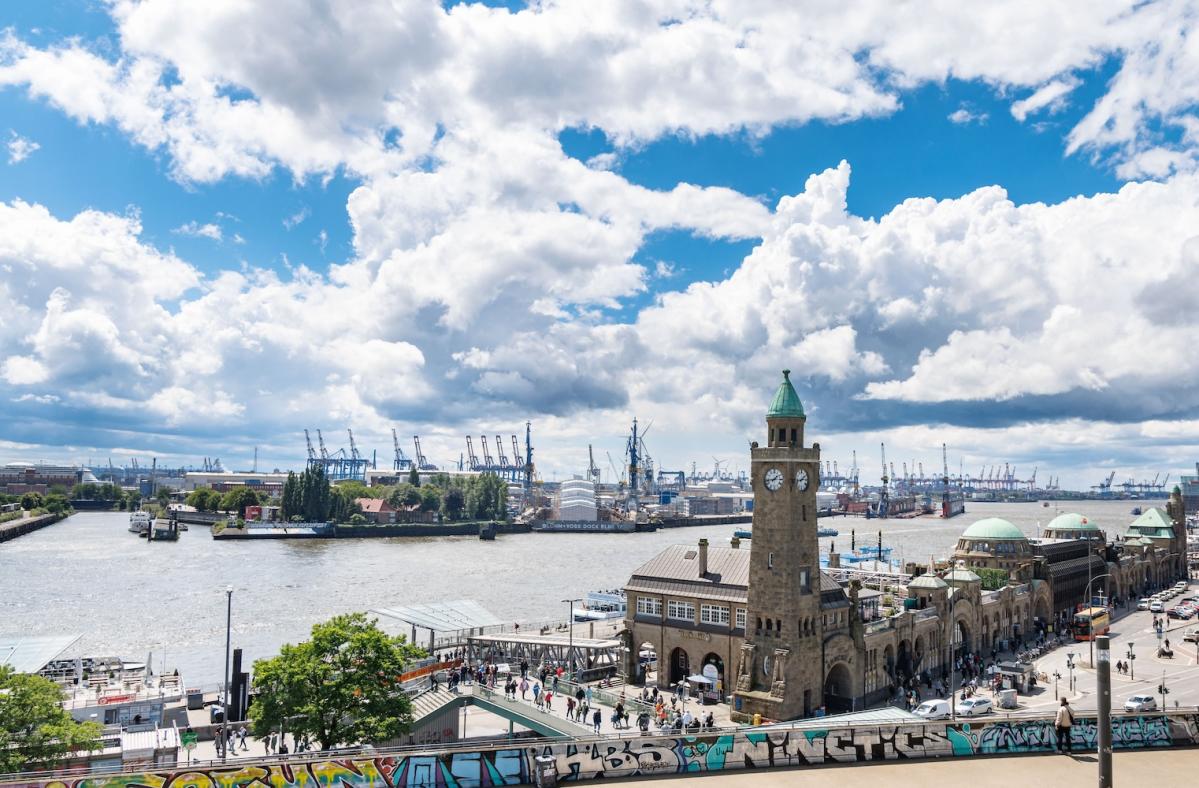As ports worldwide feel the heat of blockage, numerous of Germany’s docks are seeing work blockages as more than 11,500 union employees require a brand-new cumulative bargaining arrangement.
Strikes are happening at 5 ports throughout Germany Monday, consisting of the Port of Hamburg, the Port of Bremen, along with entrances in Bremerhaven, Brake and Emden in the middle of continuous agreement settlements in between trade union Ver.di (United Solutions Union) and the Central Association of German Seaport Business (ZDS).
More from Sourcing Journal
The 3rd round of settlements in between the celebrations started Monday early morning, and will go through Tuesday. Container pickup and drop-off will not be possible throughout this time, and rail departures will likewise be canceled or delayed.
A 2nd round of talks occurred on June 6, however the almost 2-million-member union stated the conversations did not produce any outcomes.
In the days that followed, Ver.di workers at private seaports held daily “alerting strikes.” The very first was the workers in the Port of Hamburg on June 7, followed by those in Bremen (June 11), Bremerhaven (June 12) and Emden (June 14).
Ver.di is requiring a three-euro ($3.22) boost in per hour salaries for dockworkers of since June 1, along with a matching boost in shift allowances, which are the comparable to American overtime per hour perks. The union states it desires a 12-month “catch-up” for missing out on boosts in shift allowances returning to the 2022 cumulative arrangement.
The ZDS deal consists of a 2.5 percent wage trek beginning June 1, with increased shift allowances.
“The deal that the companies have actually provided is entirely insufficient,” stated ver.di mediator Maren Ulbrich in a declaration. “It does not indicate a genuine boost in salaries for the workers and the social element is likewise entirely insufficient. This reveals no regard for the dockworkers and is far insufficient. The workers require a substantial boost in their salaries in order to have the ability to pay the increased expense of living. With their insufficient deal, the companies have actually now provoked strikes.”
The strikes in Hamburg started Monday at 5 a.m. regional time and, depending upon the port area, will last for around 24 or two days, till Monday or Tuesday night.
“This will have prevalent ramifications on our network, with numerous vessels currently prepared to be worked today/tomorrow,” stated Maersk in a consumer advisory Monday. “With existing outlook on the vessels, we do anticipate a ripple effect for all vessels. As a result, this will trigger additional hold-ups!”
Maersk is taking extra steps consisting of diverting ships from the impacted ports, or enforcing “relocation count limitations,” which restrict the overall variety of times that employees raise containers on and off a vessel. The steps are being put in location to lessen the influence on onwards vessel schedules, and prospective freight hold-ups.
As soon as terminals resume operations, there is a possibility of blockage for container shipment and pickup, Maersk stated. As an outcome, the ocean provider is asking clients to prepare their inland haulage appropriately.
If no offer is reached within the 3rd round of talks and more strikes happen beyond Tuesday, freight might be moved to bigger Northern European ports consisting of Rotterdam and Antwerp, running the risk of prospective capability issues at those entrances.
Strike action at the German ports has actually hindered operations at the centers for numerous days at a time in the last few years. 2 years back, cumulative bargaining talks for Ver.di employees were accompanied by a series of alerting strikes that brought the ports to a grinding halt for approximately 80 hours.
“The workers are dissatisfied and annoyed that the companies have actually disappointed any determination to jeopardize, however have just pointed to their own challenging financial scenario and the competitors from foreign ports. In doing so, they have actually disappointed any gratitude for the work of the workers,” stated Ulbrich, who explained that competitive pressure and balance sheet issues should not be performed on the backs of port workers.
Ulbrich likewise stressed the significance of lower wage groups getting “substantially more earnings” as part of a brand-new offer, keeping in mind that the “inflation of current years has actually struck them especially hard.” The wage spaces in between the different groups should be minimized, she argued.
As the German port work blockages rage on, France’s ports currently sustained numerous circumstances of labor action this month. Dockworkers have actually participated in numerous one-day strikes, along with various four-hour work blockages, in demonstration over pension reform that increased the statutory retirement age.
While extra strikes were at first prepared for June 21 and June 25, those actions have actually been cancelled following the statement of parliamentary elections in France.
The dissolution of parliament indicates that the unions no longer have a conciliator to negotiate their needs. As an outcome, the union representing port employees chose to suspend the strikes till September.
